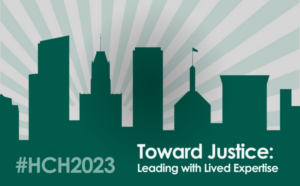As one of only a few health system-led medical respite programs in the nation, our recuperative care program (RCP) supports patients during their stay in the program and continues with wrap- around care after exiting the program. As a ten-bed respite care for those experiencing homelessness and medical needs, the RCP offers up to 90 days in a local shelter with intensive supportive services. Patients graduating from the program continue to receive services, including case management, nursing, and healthcare navigation.
Since launch in 2018, the RCP has cared for more than 100 unique patients, with more than half of these patients entering permanent housing. Operating in a housing-scarce environment, this RCP’s approach for graduates is instrumental in their securing and retaining permanent housing. Individuals exiting the program have a dedicated registered nurse, community health navigator, and social worker helping to address their basic and clinical care needs. Advantages to this model include increased connections to permanent housing and lower rates of graduates falling out of housing. A Patient Advisory Committee and developmental and participatory evaluation provide process improvement and programmatic guidance. In addition, the health system’s leadership here ensures access to coordinated care with electronic medical record documentation, connection to the health system’s recuperative care workforce development program, clinical resources, and a high level of buy-in and collaboration from community partners, including funders. This workshop will share this model of health system-led recuperative care and follow-up support, identify strategies for partnership between health systems, shelters, and patients for implementation and evaluation, and facilitate conversation to share learnings and experiences from participants.
Speakers: Monica Ray: Population Health Strategic Development Manager, Cottage Health; Salvador Robledo: Cottage Health; Marguerite Pak-Greeley: Cottage Health
Session Materials:



